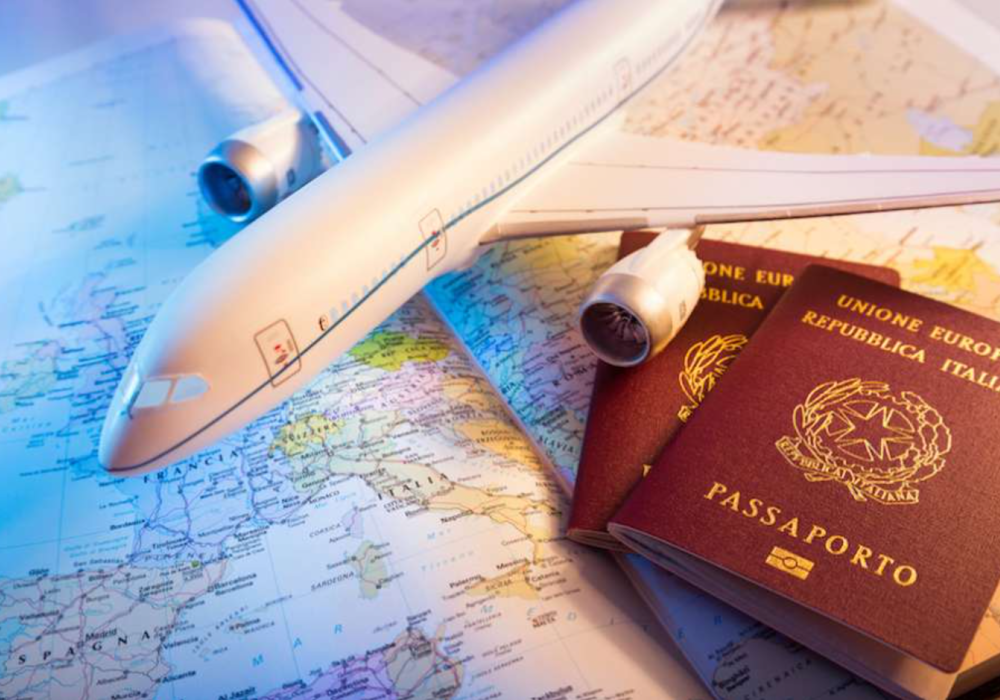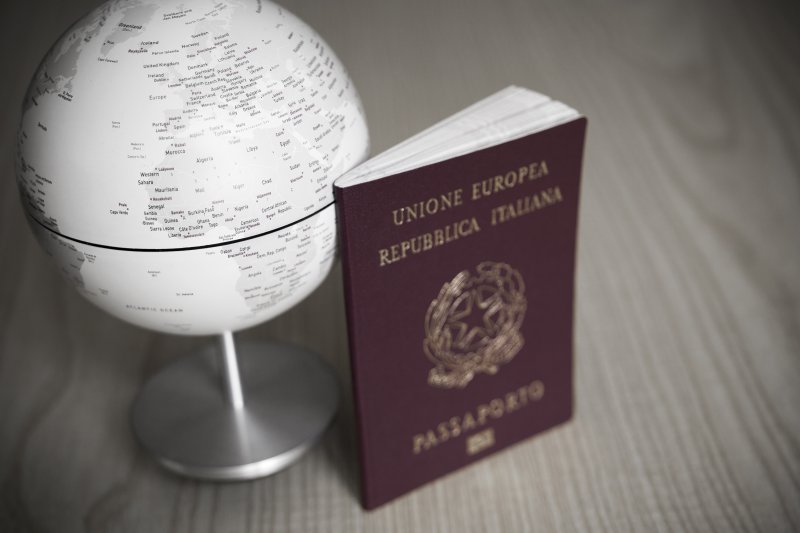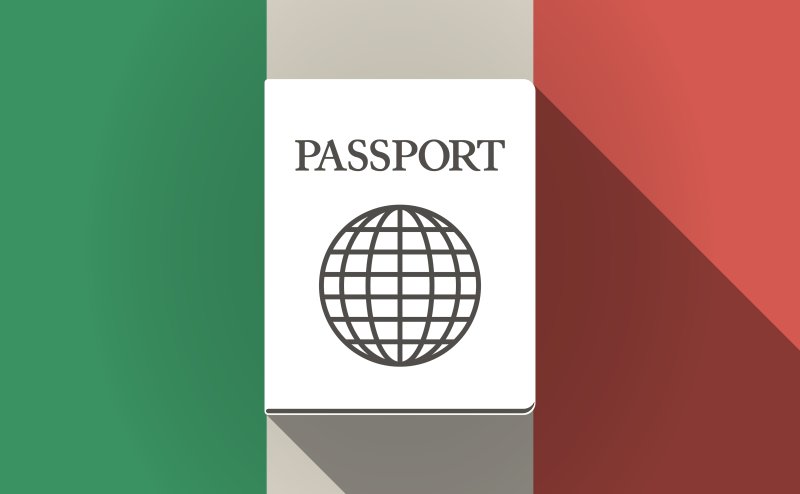Can Multiple Family Members Apply for Italian Citizenship at the Same Time?

If you determine that you qualify for Italian citizenship, odds are other family members, parents, siblings, aunts, cousins, qualify as well and wish they could apply with you. Is it possible and if so, how?
It all depends on where you, the applicant, applies, which is often determined by whether you fulfill all the Italian citizenship qualification requirements (for instance, are you affected by the 1948 Rule?) and, yes, by life events. Let’s look at each possibility:
OPTION 1 - You, the applicant, apply through one of the 10 Italian Consulates here in the U.S.
NOTE: You can only apply at the Italian Consulate that has jurisdiction over the state where you reside here in U.S.; so, the real question is where do the other family members reside?
If they reside in the same state or in a neighboring state that is part of the same Italian Consular jurisdiction, you are in luck because you will be able to “SHARE” the same document portfolio (provided you all share the same Italian ancestor and his or her descendants). If your family members are adults, they will have to make a separate appointment with the Italian Consulate, fill out the proper application forms and pay an application fee directly to the Italian Consulate the day of the appointment. One family member will apply first and all the others will be able to “tap into” your document portfolio and only present their own generation’s documents.
Please note that a few Italian Consulates require applicants who share the same document portfolio, to present “photocopies” of the lineage documents in addition to their own original birth, marriage, divorce records (whichever is applicable) and if you have minor children, their births as well (minor children apply with you automatically and at no additional cost). It is always advisable to check with the Italian Consulate to learn about their procedure by sending them an email before your appointment.
Remember: Living family members who are part of your direct Italian family lineage (such as your parent, grandparent, etc.) will be required to sign and notarize an Application Form called “Form 3” for you to be able to apply, stating that they never renounced their Italian Citizenship before any Italian authority.
A very different scenario is in store if your family members reside in different Italian Consular jurisdictions. Unfortunately, because Italian Consulates do not share documentation with any other Italian Consulate, your family members will have to present separate document portfolios all in original form to their respective Italian Consulate.

What is Exactly a Document Portfolio?
It is a compilation of documents both from Italy and the U.S., documenting every single event, such as naturalization, births, marriages, divorces, and deaths (among other documents such as name changes and adoptions, if applicable) for each generation linking you to the Italian born ancestor. While most of the other services only offer “paid” advice, at MY ITALIAN FAMILY we handle all the purchasing and preparation of the entire portfolio of documents with our comprehensive Start-to-Finish Program.
OPTION 2 - You, the Applicant, Apply at the Italian Courts for 1948 Court Challenges
If you do not qualify for Italian dual citizenship through the normal administrative route, i.e., the Italian Consulate, and your ONLY PATH to obtain Italian Citizenship is by challenging the 1948 Rule in the Italian Courts because you and your other family members are the descendants of a “Female Ancestor," then you may be in luck.
You will be able to “share” the same document portfolio provided you all share the same Italian ancestor, plus all the documents that pertain to your own generation. Although petitioning the courts in Italy is expensive, the cost can be shared among multiple family members who will be listed in the same Petition. Please note that you are not required to be in Italy for the hearing; an Italian law firm that MY Italian Family has partnered will represent you throughout the legal process.
You will still need to put together a complete and consistent document portfolio to apply through the Courts in Italy; the main difference is that the Italian translations will have to be certified by a local court in Italy, which is an additional cost.
Once the Italian judge grants you citizenship, your birth records will be recorded in your Ancestral Italian town hall first; the “Italian” birth records will then be issued to be recorded with the A.I.R.E. office, or Registry of Italian Citizens residing abroad, of the Italian Consulate that has jurisdiction over the state where you reside. Once the registration with A.I.R.E. is completed you and your family members will be able to make an appointment at your Italian Consulate to get the physical Italian passport.

OPTION 3 - You, the Applicant, Apply in Italy Because You are Planning to Move There Permanently
This option is not for everyone; applying in Italy requires you to become a “permanent” resident of Italy. You will have to be physically present there and you will need to have a legitimate reason to be there, such as retirement, a new life experience, a job, or studying in Italy. Only families who want to move to Italy with their children will be able to apply at the Italian town hall of the “comune” where they will be setting up residency. All the other qualifying family members who may be interested in applying for Italian citizenship, must follow the same requirements: establishing residency in Italy, in the same town, to be able to apply together and share the same document portfolio.
Upon your arrival in Italy you have 90 days to do the following:
- Making sure the town hall accepts your application for Italian citizenship by descent and all the documents you are required to present to them are satisfactory. Please note that also in this case, the translations to Italian will have to be certified by a local court in Italy.
- Establishing permanent residency, defined usually as a lease on a home for between 6 and 12 months, depending on what the town official wants.
- Living continuously for minimum the first 90 days, and then have flexibility to come and go after that, but during the first 6 months you need to be seen there most of the time.
- Upon establishing Italian residency and applying at the town hall office for a residency permit, you may very well get your Italian citizenship within 12 months, but it really depends on the town hall you will choose.
- Once the Italian town hall grants you citizenship, usually within the first 12 months, your birth records will be recorded there; if you continue to reside in Italy, you will be able to apply for a passport at the Prefettura that has jurisdiction over your town of residency. If you decide to move back to the U.S. the “Italian” birth records will also need to be recorded with the A.I.R.E. office, or Registry of Italian Citizens residing abroad, of the Italian Consulate that has jurisdiction over the state where you reside. Once the registration with A.I.R.E. is successful you and your family members will be able to make an appointment to get the physical Italian passport.
If you would like to learn more about the qualification requirements for Italian dual citizenship and with our assistance to determine if you do qualify for Italian citizenship by descent, call or book a FREE CONSULTATION with us.
If you already know that you qualify for Italian dual citizenship and you are ready to get started, sign up for our Full Assistance Start-to-Finish Program: we will acquire all the needed vital records from both in Italy and the U.S., process all the required amendments, and complete your portfolio with apostilles and translations to Italian. We will also prepare you for your appointment at the Italian Consulate, instruct and coach you if applying in Italy, or introduce you to our affiliate Italian law firm for handling the 1948 Challenge Lawsuits.
